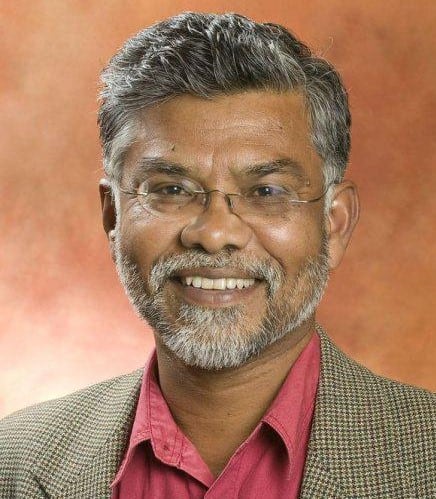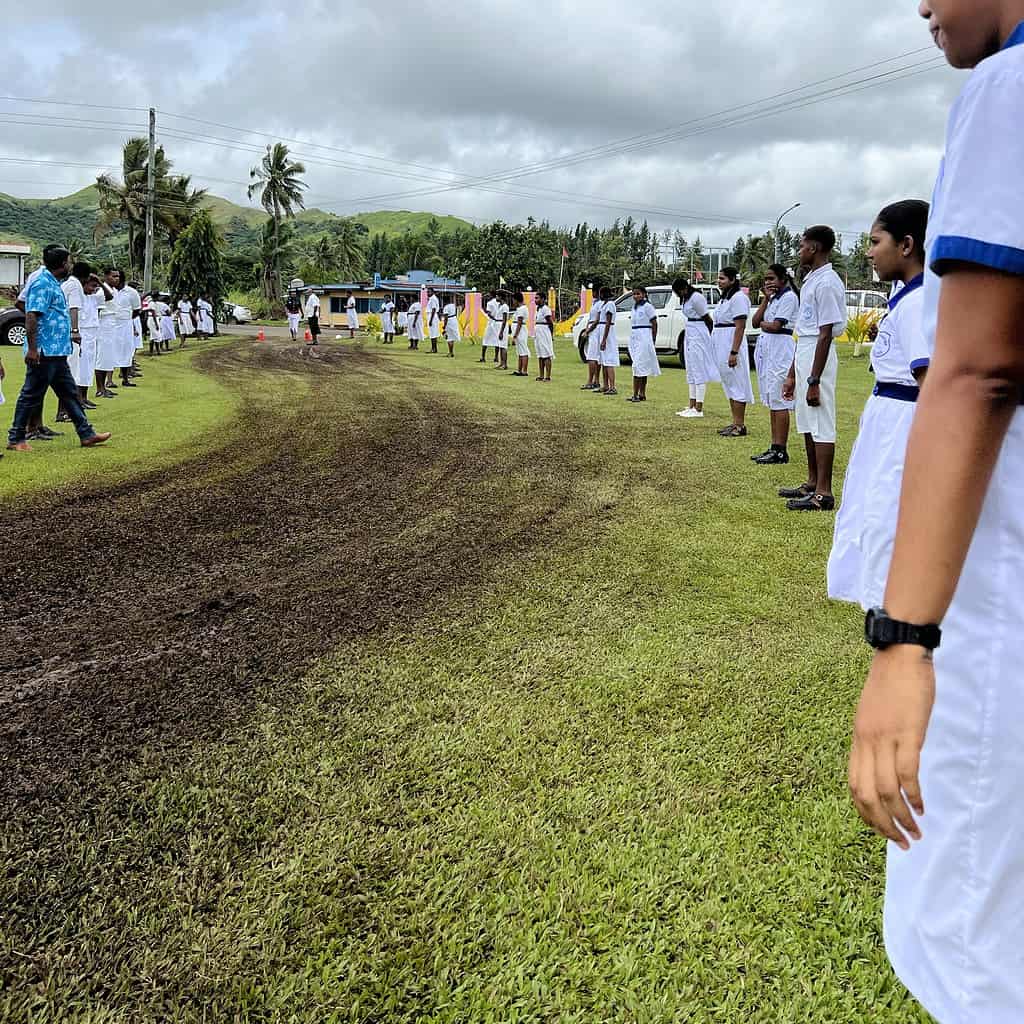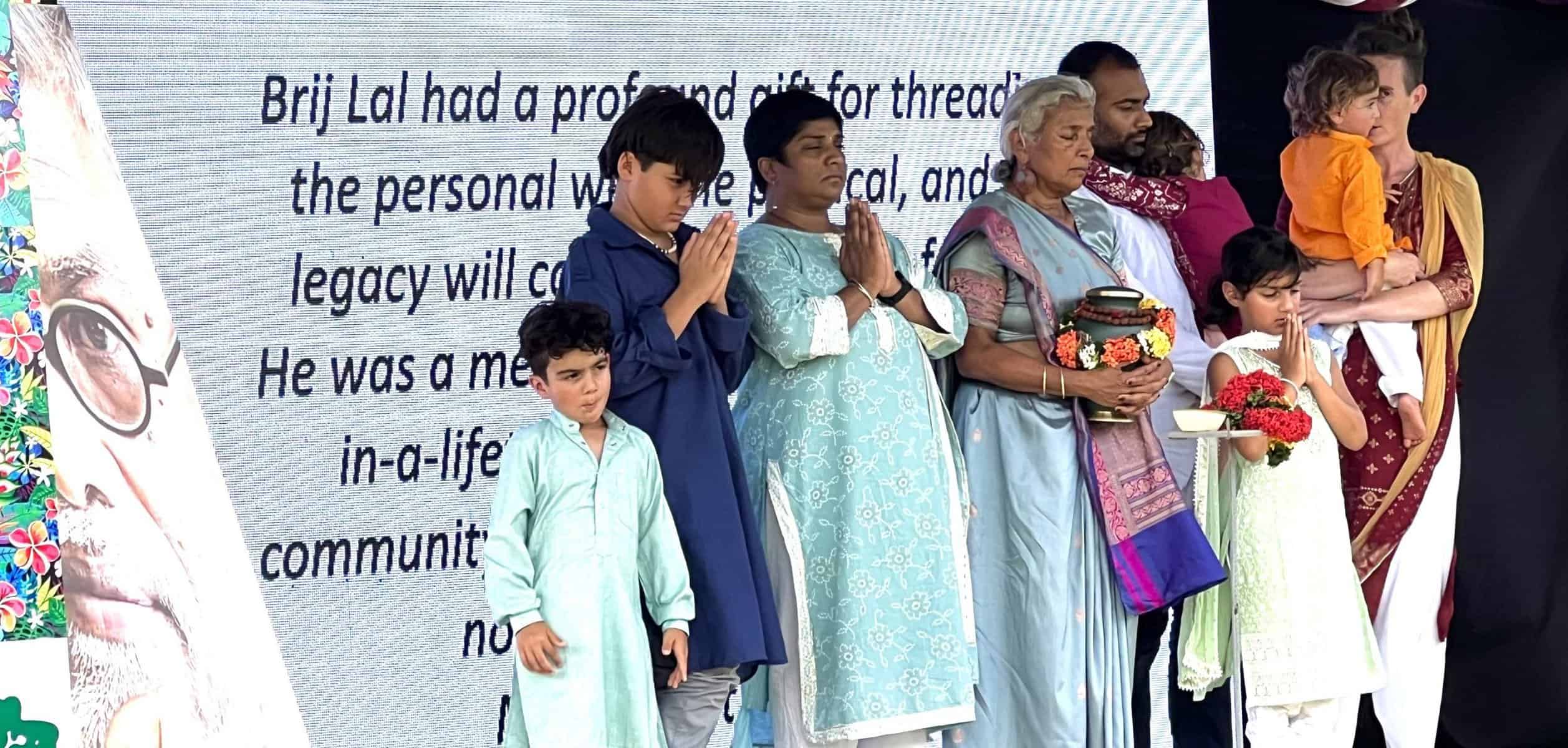It was closure for Professor Brij Lal’s family, as they said their last farewell and finally fulfilled the historian’s dying wish to be laid to rest at his home in Tabia village in northern Fiji on Saturday.
Hundreds braved the heat to pay their final respects to the man they dubbed “a true Tabia son” at Tabia Sanatan College.
Professor Lal, who died in Australia just over a year ago, had been prevented from returning home for over a decade by the previous Fiji government.
In an emotional speech, his wife, Dr. Padma Lal recollected the events of her detainment at the airport 14 years ago.
Lal said, “I was leading a research programme to conserve mangroves in Fiji and the Pacific, and as many of you know, I love mangroves. My personal computer was taken, my phone was confiscated, and I was taken to a local hotel near the airport and kept overnight under military guard.
“The next day I was on the return flight to Australia; we were exiled without having done anything wrong under the laws of Fiji, or under any international law for that matter,” she said.
“I suppose Brij’s crime was to publicly criticise the military government and speak up against Bainimarama’s military coup, the government’s autocratic rule, the loss of basic human rights, and freedom of speech.”

The retired emeritus professor of Pacific and Asian History at the Australian National University was vocal in his stand against injustice, and it was his stand against the 2006 coup by Fiji government leader Voreqe Bainimarama that led to his exile in 2009.
In his years of exile, the professor and his wife had held on to the hope that they will return to Fiji, said Dr Lal. “We remained optimistic, one day we said to ourselves, we will return to our country of birth, continue our respective research on issues of importance to Fiji and the Pacific, and continue to contribute in whatever legal ways we can to the country.
“We never ever considered that one of us may not be returning home without the other person,” she said.
Professor Brij Lal was the fourth eldest of the eight siblings and died in his adoptive home in Brisbane at the age of 69. The youngest of his brothers, 63-year-old Rajendra Prasad, said, “He was a very humble person, he was the first person in our family to go to university, and that inspired us to follow suit.
“He was a person who wanted freedom and democracy, and when the coups happened, he was very vocal about that.”.
In one of his contributions to Islands Business, he wrote that Fiji forever lost its innocence on May 14, 1987. Quoting the professor’s reasoning, Prasad said, “a coup is a rape of democracy, there is no such thing as a good rape or a bad rape.”


On Saturday, the tent at Tabia Sanatan was filled to capacity as local community members and others piled in to pay their last respects to the historian. While he touched the lives of people through his causes, whether fighting against injustice or his contribution to the Girmitya legacy, there were many people attending the event who were inspired by his work, such as prominent lawyer, Graham Leung.
“As a Fiji citizen, I wanted to be here, as a mark of respect and appreciation for someone who has contributed a great deal to this country, for someone who has been wronged, and I wanted to be here personally to show my appreciation and high regard,” Leung said.
“For the long period that we were under the previous government for 16 years, Brij has been the moral compass for this country, when most of us could not or were not able to speak because of the media censorship laws or for fear of being taken to the barracks or being investigated by FICAC or the police,” he said.
“Brij spoke up for us; he was the megaphone that told the rest of the world many of the dreadful things that were happening.”
The Professor’s family told Islands Business that though they were sad that Brij was not able to step foot home, they are happy and find closure in the thought that his wishes are fulfilled and his ashes are back home.
